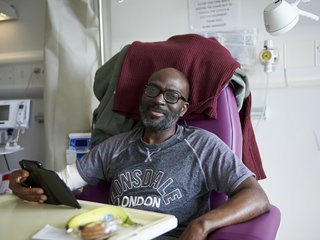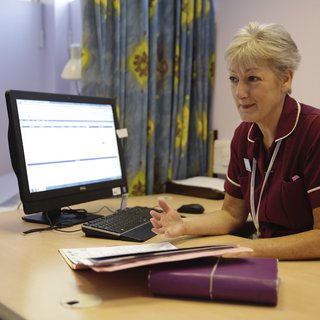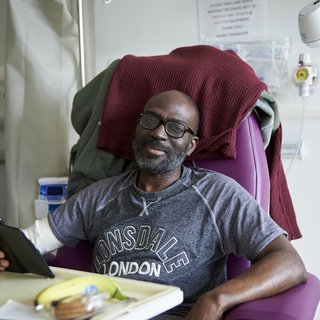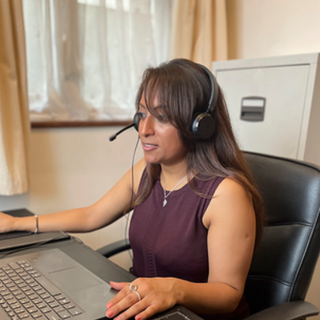Help us improve access to clinical trials for minority ethnic groups
We aim to improve awareness and access to blood cancer clinical trials for minority ethnic groups. To help us to achieve this goal we need support from healthcare professionals, academics and researchers.
About the project
Some types of blood cancer are three times more common in certain ethnic groups than in others, yet people from minority ethnic groups are less likely to take part in clinical trials. Through this project, we aim to increase our understanding of why this is the case and develop interventions to improve awareness and access to blood cancer clinical trials.
This is an 18-month project which started in April 2024 and is funded by Bristol Myers Squibb. To help deliver this project we've partnered with The Social Innovation Partnership (TSIP).
- Advancing blood cancer research helps us to achieve our strategic goals of improving survival for our blood cancer community.
- There is evidence to show an underrepresentation of people from minority ethnic groups in medical research and clinical trials.
- We want to work with Black and Pakistani community members because some types of blood cancer are more common within these communities.
- This project is in its pilot stage, meaning that we're focusing on one location (London) to help us better understand the barriers to accessing clinical trials. As the project progresses we will engage professionals from across the UK to share insights and learnings to ensure that anything we develop works for everyone.
- To better understand attitudes towards and barriers to accessing clinical trials.
- Develop and test countermeasures to reduce inequalities in accessing clinical trials.
Our goal is that these findings and pilot interventions will result in a greater proportion of ethnic minority community members from a specific geographical location becoming aware of and having access to a clinical trial or study relevant to them.
Opportunities to support project
Insight and support from health professionals and researchers will be integral to the success of this project. Opportunities to support the project include:
- sharing insights from projects that may align with this work
- sharing clinical expertise and/or lived experience
- participate in a series of interviews and workshops
- benchmark what's happening in clinical practice
If you would like to receive updates or would like to support this project. Please sign up for project updates.
Can you help recruit people from Black or Pakistani communities?
We want to talk to people affected by blood cancer from these communities (ideally based in London) to talk about their blood cancer experience and better understand barriers to accessing trials. Please help us reach people from Black or Pakistani communities by sharing our poster.

Our research
Engaging patients from minority ethnic groups with clinical trials for blood cancer
Andrew Smart, a reader in Sociology at Bath Spa University examined why so few patients from minority ethnic groups take part in clinical trials. This report explains both the potential barriers and solutions for addressing the underrepresentation of patients from minority ethnic groups in UK clinical trials.

Read the clinical trials and minority ethnic groups report
"Issues of mistrust, language difference and understanding may be exacerbated by the complexity of blood cancer"
Page 27 on report
Ethnic disparities in blood cancer
This report collates available evidence about the ethnic variations in incidence, survival, needs and experiences of people diagnosed with blood cancer.
Key findings from reports
- Rates of multiple myeloma are higher among Black African and Black Caribbean men and women.
- Rates of leukaemia are slightly higher among Pakistani men, women and children, and Black African women.
- Rates of some types of lymphoma are slightly higher among Pakistani and Black African men and women, and Indian men.
- We don’t know the true relationship between blood cancer and ethnicity in the UK, as only 20% of clinical trial results published analyse results by race or ethnicity.
- Things like awareness, understanding and perception of treatments, trust in the treatment teams and practical worries can impact whether someone takes part in a clinical trial.
- Language and cultural differences can be made worse due to the complexity of blood cancer and the number of different diagnosis,
- The research also found that HCP awareness of trial availability, workload, HCPs own views on trials and how suitable they are for patients can also impact people participating in trials.



